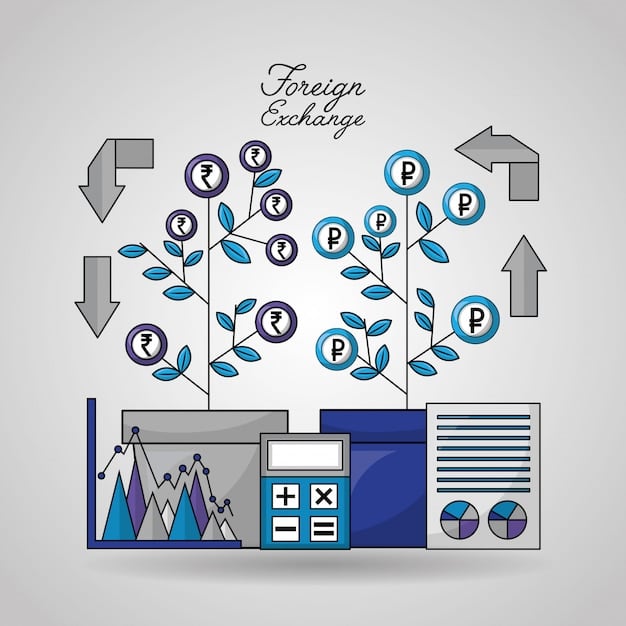Recent Updates: Data Privacy Regulations and Business Compliance

Recent Updates: New Regulations on Data Privacy – Is Your Business Compliant with the Latest Laws? This article explores the latest changes in data privacy regulations and provides guidance on how businesses can ensure compliance to avoid penalties and maintain customer trust.
Navigating the evolving landscape of data privacy regulations can be daunting for businesses. Recent Updates: New Regulations on Data Privacy – Is Your Business Compliant with the Latest Laws? is a question every business owner should be asking. This article provides a comprehensive overview of the recent changes in data privacy laws and offers actionable steps to help your business stay compliant and protect your customers’ information. Let’s dive in and ensure your business is up to date and secure.
Understanding the Shifting Sands of Data Privacy
Data privacy is no longer just a compliance issue; it’s a matter of trust and fundamental to maintaining a positive brand reputation. The landscape of data privacy regulations is constantly changing, which means businesses need to stay informed about the latest updates.
Key Data Privacy Regulations to Watch
Several key regulations are shaping the way businesses handle data. Understanding these laws is crucial for compliance.
- General Data Protection Regulation (GDPR): Remains a benchmark for data protection, impacting businesses worldwide.
- California Consumer Privacy Act (CCPA): Grants California residents significant rights over their personal data.
- Virginia Consumer Data Protection Act (CDPA): Similar to CCPA, it provides data protection rights to Virginia residents.
- Other State Laws: Many other states are following suit with their own data privacy laws, creating a complex web of regulations.
Staying abreast of these changes requires continuous monitoring and adaptation of your data handling practices. These regulations affect all sizes of business and therefore, require monitoring frequently.
In conclusion, it is important to understand the key data privacy regulations by understanding each regulation individually as mentioned above.
How Recent Updates Impact Your Business Operations
The recent updates in data privacy are not just abstract legal concepts; they have real-world implications for how your business operates daily. Understanding these impacts is essential for maintaining compliance and avoiding costly penalties.

The legal complexities surrounding compliance necessitate a deep look into the effects on your business practices.
Marketing and Advertising
Data privacy regulations significantly impact marketing and advertising activities. Businesses must obtain explicit consent before collecting and using personal data for marketing purposes.
Data Collection and Storage
Changes in regulations also affect how businesses collect and store data. Transparency is key, and businesses need to inform individuals about the types of data collected, how it is used, and with whom it is shared.
These new regulations pose challenges for how the data is collected and stored. Some companies may have a lot of data that needs to be filtered out and others that have been following regulations can continue using their current practices.
Summarizing, the new updates do impact business operations. The marketing tactics are most impacted and data collection and storage needs to followed carefully.
Practical Steps for Achieving Data Privacy Compliance
While understanding the regulations is crucial, taking practical steps to achieve compliance is equally important. Here are some actionable steps your business can take to ensure you’re meeting the latest data privacy requirements.
The path forward is to achieve data privacy compliance by taking the proper precautions. The steps below will help you get a head start!
Conduct a Data Privacy Audit
Start by conducting a comprehensive data privacy audit to identify areas of non-compliance. This audit should assess your current data handling practices, policies, and procedures.
Implement a Privacy Policy
Develop a clear and comprehensive privacy policy that outlines how you collect, use, and protect personal data. This policy should be easily accessible to individuals and written in plain language.
Train Employees on Data Privacy
Ensure all employees are trained on data privacy regulations and your company’s privacy policies. Regular training can help prevent accidental data breaches and compliance violations.
- Awareness Programs: Implement regular awareness programs.
- Role-Specific Training: Provide role-specific training for employees.
- Incident Response: Prepare a plan for data breach reporting.
By conducting audits, implementing privacy policies, and training employees, you can successfully start to tackle data privacy. These items can be discussed in leadership meetings and delegated to team members to complete.
Addressing the Challenges of Global Data Transfers
Global data transfers present unique challenges due to the varying data privacy laws across different jurisdictions. Understanding these challenges is crucial for businesses operating internationally.
Operating in different jurisdictions can be very challenging. It is important to understand what exactly the challenges are and how to solve them.
Cross-Border Data Flows
Cross-border data flows are essential for many businesses, but they also raise significant data privacy concerns. Different countries have different data protection standards, making it challenging to ensure compliance.
Mechanisms for Data Transfers
Several mechanisms enable lawful data transfers, including standard contractual clauses (SCCs) and binding corporate rules (BCRs). These mechanisms provide a framework for ensuring data protection when transferring data across borders.
These solutions are in place to help you safely do data transfers. Without them, sensitive data is likely to be distributed in the incorrect manner and land into the wrong hands. Keep that in mind when selecting your solution.

- Evaluate Data Transfer Needs: Understand why the data is being transferred.
- Implement Data Encryption: Protect data during transit.
- Regular Audits: Continuously monitor data transfer practices.
Global data transfers can be difficult for teams that do not understand all of the rules and regulations. By evaluating data transfer needs, implementing data encryption, and doing regular audits, you can be sure that your team is following procedures and will be successful in achieving compliance.
Future Trends in Data Privacy Regulations
The world of data privacy is constantly evolving, with new regulations and technologies emerging regularly. Staying ahead of these trends is essential for ensuring long-term compliance and maintaining a competitive advantage.
The future of data privacy can be difficult to predict. Here are some trends on what we are seeing so far!
Increased Focus on AI and Machine Learning
As AI and machine learning become more prevalent, data privacy regulations will likely focus on the ethical and responsible use of these technologies. This includes addressing issues such as algorithmic bias, transparency, and accountability.
Enhanced Data Protection Technologies
New technologies, such as privacy-enhancing technologies (PETs), will play an increasingly important role in protecting data. These technologies enable businesses to process data without revealing sensitive information.
The AI and machine learning industries will continue to grow which is impacting data privacy regulations. Without these regulations, there is a danger for a lot of bias to occur. With enhanced data protection technologies, the technologies will allow businesses to process data without leaking sensitive information. A lot of businesses are going to have to follow these standards if they wish to grow.
To conclude, AI and machine learning need more regulations to ensure algorithmic bias is mitigated. Also data protection technologies are needed to process data without leaking sensitive information. Following these steps will allow you to grow your business safely and securely.
Ensuring Your Business Thrives Amidst Data Privacy Changes: Recent Updates: New Regulations on Data Privacy – Is Your Business Compliant with the Latest Laws?
In today’s digital age, data privacy is not merely a legal obligation but a cornerstone of consumer trust. Recent Updates: New Regulations on Data Privacy – Is Your Business Compliant with the Latest Laws? is a question that should always be asked and understood by everyone. By prioritizing data protection, businesses can build stronger relationships with customers, enhance their brand reputation, and achieve long-term success. Staying informed about the latest data privacy laws can do just that!
| Key Point | Brief Description |
|---|---|
| 🛡️ Data Privacy Audit | Evaluate current data handling practices. |
| 📜 Privacy Policy | Publish a clear and accessible policy. |
| 🧑💼 Employee Training | Train staff on data protection laws. |
| 🌐 Global Transfers | Comply with international data transfer rules. |
Frequently Asked Questions
GDPR focuses on consent, transparency, and data minimization. It requires businesses to protect EU citizens’ personal data and report breaches promptly. All this is important for businesses that are following the recent updates: New Regulations on Data Privacy – Is Your Business Compliant with the Latest Laws?
CCPA grants California residents rights to access, delete, and opt-out of the sale of their personal data. Businesses must comply with these requests and provide clear notice of their data practices.
A data privacy audit involves reviewing data handling practices, policies, and procedures. It helps identify areas of non-compliance and prioritize remediation efforts. Recent Updates: New Regulations on Data Privacy – Is Your Business Compliant with the Latest Laws? Audit will help you answer that.
SCCs are a mechanism for ensuring data protection when transferring data across borders. They provide a set of contractual obligations that parties must adhere to.
Staying updated involves monitoring regulatory websites, subscribing to industry newsletters, and consulting with data privacy experts. Continuous monitoring helps maintain compliance. Monitoring regulations for recent updates: New Regulations on Data Privacy – Is Your Business Compliant with the Latest Laws?
Conclusion
Staying compliant with Recent Updates: New Regulations on Data Privacy – Is Your Business Compliant with the Latest Laws? doesn’t have to be a headache. By taking proactive steps, and understanding the upcoming trends, businesses can protect customer data, build trust, and achieve lasting success. Always make sure you are frequently checking regulations and updating your practices to follow.





